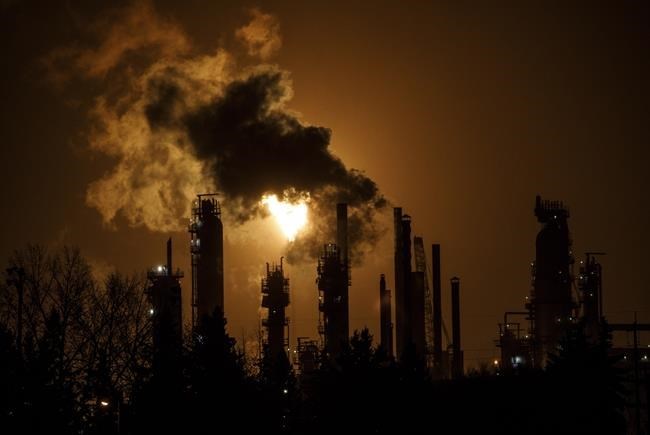EDMONTON — The federal and Alberta governments have signed an agreement with a company that could lead to a $1.3-billion hydrogen plant being built in Edmonton.
Two federal ministers, Alberta Premier Jason Kenney and Edmonton mayor Don Iveson announced Wednesday a memorandum of understanding with Air Products Canada to build the plant, which would produce the clean-burning fuel from natural gas.
"This is a very concrete step toward one of the first facilities that will help make Canada, Alberta, and Edmonton global leaders in growing the clean hydrogen sector," said Francois-Philippe Champagne, Minister of Innovation, Science, and Industry, who appeared with Natural Resources Minister Seamus O'Regan.
In a release, Air Products Canada — which already operates three hydrogen facilities in Alberta and one in Ontario — said its board of directors has approved the project "subject to final completion of the agreements contemplated in signed memorandums of understanding between Air Products and Canadian authorities, and with appropriate permit approvals."
Those agreements to be completed include government investment, tax, and regulatory provisions.
"We will be working out details of potential support and incentives for this project," said Kenney, who added Air Products has already received $15 million from the province's carbon levy through Emissions Reduction Alberta.
Ottawa will be part of those talks, said Champagne.
"Once you have an MOU (memorandum of understanding), then you need to move to the next phase to come to a final agreement and define the level of contribution and the commitments that would be made by the federal government and the company."
Air Products CEO Seifi Ghasemi, based in the company's Pennsylvania head office, praised the federal and provincial politicians.
"I can't think of a better place to invest our money for the long term than Canada," he said. "You are leading the world in the vision for energy transition."
If built, the plant would produce hydrogen-fuelled electricity and liquid hydrogen for transportation. It could be running by 2024 and would create about 2,500 jobs in the construction and engineering phase, said Rachel Smith, the company's Canadian general manager.
Air Products would take natural gas produced in Alberta and remove 95 per cent of the carbon. That carbon, in the form of carbon dioxide, would be injected underground using already existing infrastructure. Its own operations would be carbon neutral.
The plant would capture three million tonnes of CO2 yearly and produce 1,500 tonnes of hydrogen a day.
"There will be enough liquid hydrogen capacity to fuel every transit agency across Alberta," said Smith.
Hydrogen, which burns without releasing carbon, is considered to be one of the most promising paths to reducing emissions from heavy transportation such as city buses or transport trucks. Estimates of the market vary widely, but most suggest it would be in the tens of billions dollars a year by the end of the decade.
The Pembina Institute, a clean energy think-tank that produced an assessment of the project for the company, praised Air Products' plans, calling its technology best-in-class.
"Air Products has developed an innovative project design that is a major improvement relative to existing hydrogen production using natural gas,” said the group's assessment.
However, it pointed out the plant would still use fossil fuel and will eventually need to compete with hydrogen produced through renewables.
"It will have to close the gap between the life cycle emissions of hydrogen produced with natural gas and hydrogen produced with renewable electricity."
At least one environmental group called the proposed plant "greenwashing."
"Rather than prioritizing renewable energy and putting Canada on a pathway to net-zero emissions, public funding is being put towards finding new revenue streams for oil and gas companies," said Julia Levin of Environmental Defence in a statement.
A spokesman for the Canadian Association of Petroleum Producers said the industry was pleased to see new energy investment.
"Canada's natural gas industry and oil industry has a significant role to play in a responsible energy future," said Jay Averill. "The industry has the natural resources along with the talent, expertise and drive to deliver lower emissions intensive energy."
This report by The Canadian Press was first published June 9, 2021.
Bob Weber, The Canadian Press



